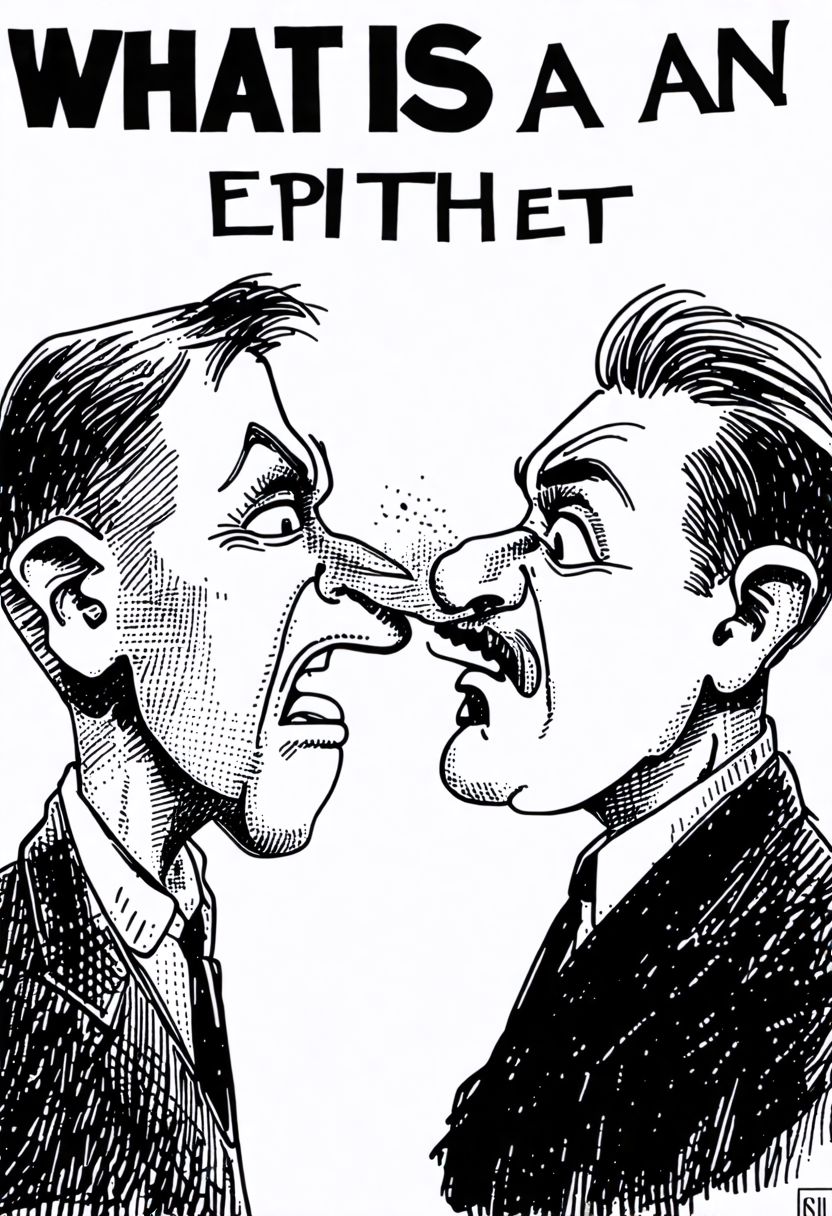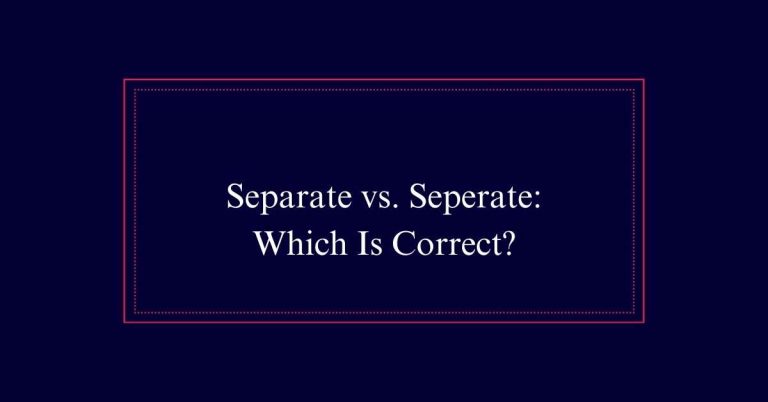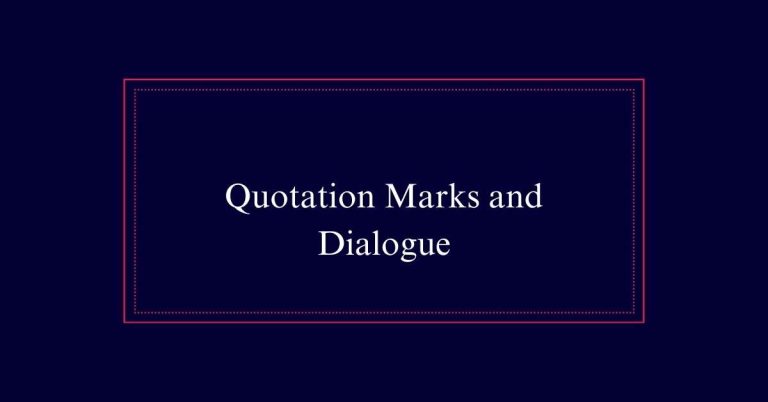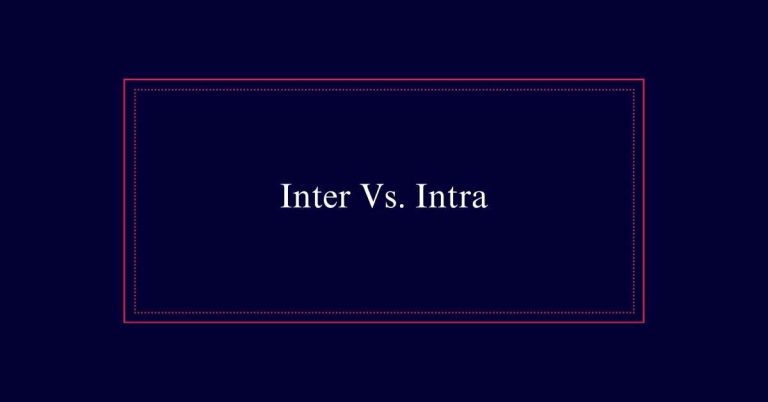What Is an Epithet? Definition and Examples
An epithet is a descriptive word or phrase used to emphasize specific qualities of a person or thing. Originating from the Greek word ‘epitheton’, epithets add depth and vivid imagery to writing.
They can be fixed phrases like ‘Alexander the Great’ or more metaphorical like ‘whale-road’ for the sea. Epithets create strong visual images, evoke emotions, and enhance the rhythm of a text. They can also convey cultural context and bias opinions.
Definition of Epithets
Epithets are descriptive words or phrases that highlight specific qualities of a person, place, or thing. Derived from the Greek word ‘epitheton,’ they serve to characterize subjects in a vivid manner. Epithets enhance literary works by adding depth and richness, making descriptions more engaging.
They often carry symbolic meanings, reflecting cultural or historical contexts. For example, Homer’s ‘swift-footed Achilles’ in the Iliad emphasizes Achilles’ speed and prowess in battle. Epithets can also improve the rhythm and flow of both poetry and prose.
Purpose of Using Epithets
Epithets in literature serve to vividly characterize subjects, enhancing their presence and significance within the narrative. By highlighting key traits, epithets add depth and richness to writing, making descriptions more memorable and engaging. They evoke powerful imagery, contributing to the overall aesthetic quality of the text. This technique also aids in building rhythm and flow in both poetry and prose. Additionally, epithets can reflect cultural and historical contexts, adding layers of meaning to the work.
| Purpose | Description | Example |
|---|---|---|
| Characterization | Highlights key traits of subjects | ‘Swift-footed Achilles’ |
| Imagery | Evokes vivid mental pictures | ‘Rosy-fingered dawn’ |
| Rhythm | Enhances the flow of text | ‘Wine-dark sea’ |
| Cultural Context | Reflects historical or cultural significance | ‘Alexander the Great’ |
Fixed Epithets
Fixed epithets are repeated phrases that firmly associate a specific quality with a character or object throughout a literary work. They create a sense of familiarity and consistency. Authors use fixed epithets to emphasize key traits and make characters memorable.
For example, in Homer’s ‘The Iliad,’ Achilles is often referred to as ‘swift-footed Achilles.’ This phrase highlights his speed and agility. Fixed epithets also aid in maintaining the rhythm and enhancing the oral tradition of storytelling.
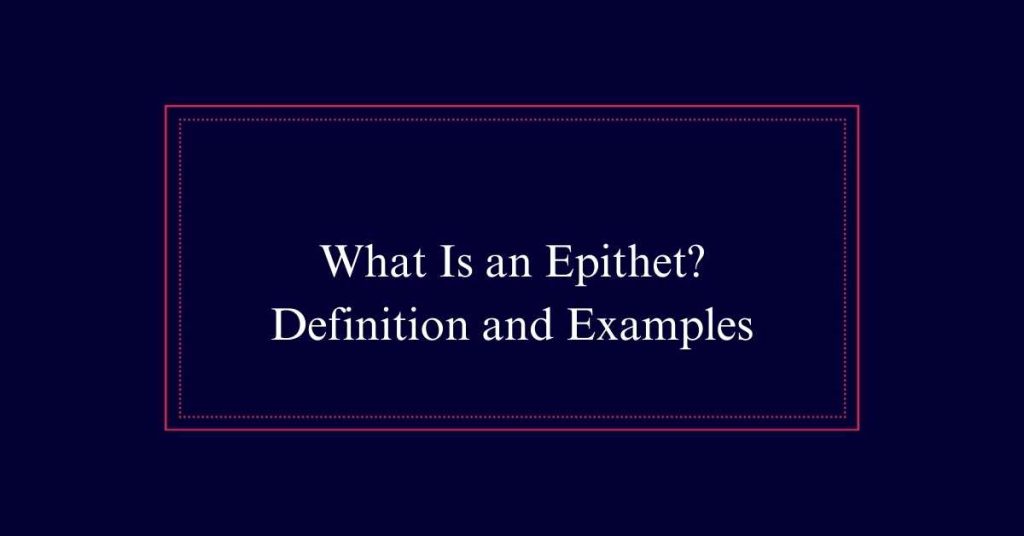
Argumentative Epithets
How do argumentative epithets influence readers’ emotions and sway opinions in persuasive writing?
Argumentative epithets are potent tools in debate and persuasive writing. By attaching emotional and descriptive labels to people, ideas, or actions, they can evoke strong feelings and biases. These epithets can shape perceptions and incite reactions, often without the reader realizing it.
Consider these effects:
- Evokes Emotion: Stir feelings like anger or compassion.
- Shapes Perception: Alters how readers view subjects.
- Biases Opinions: Leads to partiality or prejudice.
- Enhances Persuasion: Strengthens arguments by appealing to emotions.
- Simplifies Complex Ideas: Makes concepts more relatable and memorable.
Kenning Epithets
Kenning epithets, which are metaphorical two-word phrases, enrich writing by adding vivid imagery and depth. Originating from Old Norse and Anglo-Saxon poetry, these phrases combine two nouns to create a striking metaphor.
Examples include ‘whale-road’ for the sea and ‘battle-sweat’ for blood. Kennings transform mundane descriptions into evocative, imaginative expressions. They engage the reader’s senses and encourage deeper interpretation of the text.
Enhancing Literary Works
Building on the rich imagery provided by kenning epithets, enhancing literary works involves using a variety of epithets to add depth and vividness to writing. Epithets can transform a simple narrative into a rich, textured experience. They help paint detailed pictures in the reader’s mind and evoke emotions effectively.
Here are some benefits of using epithets:
- Characterization: Epithets reveal traits and qualities of characters succinctly.
- Imagery: They create strong visual images that engage readers.
- Emotion: Epithets evoke feelings, making the text more relatable.
- Rhythm: They contribute to the flow and musicality of prose and poetry.
- Symbolism: Epithets often carry deeper meanings and cultural references.
Selective Usage Tips
When using epithets, choose phrases that enhance the tone and meaning of your writing without overshadowing the narrative. Ensure that the selected epithet fits seamlessly into the context, adding depth without becoming a distraction.
Avoid overuse to prevent redundancy and dilution of impact. Instead, opt for unique and memorable epithets that highlight key attributes of characters or settings. Be mindful of cultural and historical connotations to meaningfully enrich the text.
Use epithets sparingly to maintain their effectiveness. Balance is key; a well-placed epithet can elevate prose, but excessive use can clutter your writing. Focus on clarity and precision to maximize the effect of each epithet.
Engaging Readers’ Senses
To engage readers’ senses, epithets should evoke vivid imagery and emotional responses. By carefully choosing descriptive words, writers can create a rich sensory experience that draws readers into the narrative. Epithets help paint detailed mental pictures and evoke feelings, making the text more engaging and memorable.
Consider the following aspects to engage readers’ senses through epithets:
- Visual Imagery: Use epithets that create clear and striking pictures.
- Emotional Resonance: Choose words that stir strong feelings.
- Cultural References: Incorporate epithets with historical or cultural significance.
- Sound and Rhythm: Select epithets that enhance the musical quality of the text.
- Symbolic Meaning: Use epithets that carry deeper, symbolic connotations.
Figurative Language in Epithets
Figurative language in epithets enhances the descriptive power of writing by using metaphors, similes, and other literary devices to create vivid imagery and deeper meaning.
Metaphors and similes allow writers to draw comparisons, adding layers of interpretation. For example, using ‘the iron-willed leader’ suggests strength and determination through metaphor. Similarly, ‘as fierce as a lion’ employs a simile to convey bravery. These devices enrich the text by appealing to readers’ senses and emotions.
Employing figurative language in epithets also helps to encapsulate complex ideas succinctly, making descriptions more engaging and memorable. By skillfully weaving these elements, writers can evoke powerful imagery and convey nuanced aspects of characters or settings.
Famous Epithet Examples
Building on the power of figurative language, famous epithets illuminate characters and settings with memorable and vivid descriptions. These epithets resonate in literature and history, making figures unforgettable.
For example:
- Alexander the Great: Conveys power and conquest.
- Catherine the Great: Highlights her influence and leadership.
- Ivan the Terrible: Evokes fear and tyranny.
- William the Conqueror: Emphasizes his military success.
- Bloody Mary: Reflects her harsh reign.
Each epithet encapsulates the essence of these individuals, painting a clear picture in a few words. By using such descriptive phrases, writers and historians can convey complex ideas succinctly and effectively.
Frequently Asked Questions
How Do Epithets Differ From Regular Adjectives?
Epithets differ from regular adjectives by providing deeper context and imagery. While adjectives simply describe, epithets add specific qualities, cultural significance, and emotional resonance, enriching the narrative and enhancing the reader’s connection to characters or settings.
Can Epithets Be Used in Modern-Day Writing and Media?
Yes, epithets can be used in modern-day writing and media. They enhance descriptions, add depth to characters, and evoke emotions. Writers use them to create vivid imagery and memorable narratives in literature, journalism, and advertising.
Are Epithets More Common in Certain Literary Genres or Periods?
Epithets are particularly prevalent in genres like epic poetry and classical literature, often seen in works from ancient Greece and Rome. They help in characterizing heroes, gods, and important figures, contributing to the narrative’s depth and memorability.
